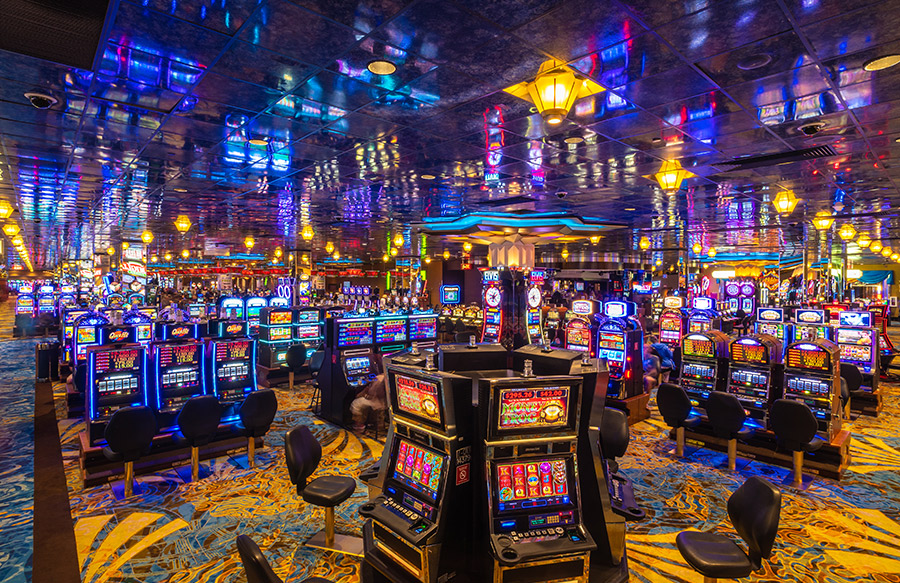
Casino experiences have long captured the fascination of humans around the world, becoming an important part of both fun and culture. From the sparkling lights of Nevada to the immersive experience of online gaming, these experiences evoke enthusiasm, uncertainty, and sometimes even a sense of sentimentality. They are beyond simply hobbies; they have woven themselves into the fabric of society, influencing various aspects from cinema and songs to fashion and books.
The allure of casino games goes beyond the gambling aspect, tapping into wider themes of serendipity, possibility, and social interaction. As players gather around a gaming table or rotate the roulette, they engage in an timeless ritual that connects with our shared desire for adventure and instability. This captivation has led to the growth of countless references in cinema, tracks, and video games, showcasing how intensely entrenched these pastimes are in pop culture. Whether it is the high-stakes tension of a classic caper or the lively nightlife portrayed in music videos, casino games have created a substantial niche that reflects our connection with reward.
Historical Importance of Gambling Activities
Casino games have played a crucial role in cultural contexts throughout history. Stemming from old civilizations, games of chance were often linked to rituals or gatherings. For instance, early forms of gambling can be linked back to historic China and the Roman Empire, where die games and wagering on outcomes were popular pastimes. These games not only functioned as leisure but also as means of connecting people, facilitating relationships among people within communities.
As societies evolved, so did the complexity and structure of casino games. casino no cruks The establishment of formal casinos in the 17th century, particularly in Italy, marked a significant shift in how games were viewed and structured. With designated spaces for gambling, the casino became a social hub where patrons from various backgrounds gathered. This change contributed to the validation of the industry, transforming it from a mere pastime into an organized industry that influenced economy and regulations.
The impact of gambling games on mainstream culture cannot be understated. As they were popularized in literature and film, games such as poker and 21 became icons of chance, chance, and tactics. Iconic characters and stories have developed around these activities, illustrating societal views towards luck, wealth, and vice. This fascination with gambling activities has infiltrated various forms of entertainment, cementing their status in the collective consciousness and connecting them to broader cultural stories throughout the ages.
Depiction of Casino Games in Media
Casino games have long been a popular theme in various forms of media, reflecting both the excitement and nuances of the world of gambling. Movies such as Ocean’s 11 and Casino Royal portray individuals who navigate dangerous scenarios, showcasing not only the attractiveness of the gambling environment but also the tactics and decisions that come with playing popular games like poker and 21. These movies often dramatize the thrill of winning and the potential results of losing, encapsulating the risks involved in gambling.
Television shows have also explored the universe of gambling activities, often integrating them into the plot as a backdrop for character arcs and conflict. Series like Las Vegas depict the lives of gambling employees and patrons, highlighting the dynamic, often chaotic energy of the casino floor. Reality shows featuring high-stakes betting contests further emphasize the appeal of casino games, drawing viewers into the excitement and planning involved in each round. Through these portrayals, media not only engages but also prompts conversations about fortune, expertise, and the character of chance.
Gaming have increasingly integrated gambling activities into their structure, allowing players to recreate the feeling of gambling without monetary loss. Games within the realm of digital gaming often include online slot machines, online poker, and other popular casino games, creating an interactive experience that mirrors traditional gambling. These digital representations make casino games accessible to a global audience, appealing to both risk-takers and those who enjoy the thrill of simulation. As a result, the portrayal of casino games in entertainment continues to shape societal views and cultural significance, highlighting their role in entertainment and the cultural landscape.
Effect of Gambling Activities on Society
Casino games have a significant impact on society, influencing various aspects of societal norms and interpersonal behavior. They often serve as a venue for community engagement, where people come together to experience a shared experience. Game nights with friends or visits to casinos become social activities that build connections and create shared moments. This communal aspect enhances the fun value of gambling activities, making them a popular choice for celebrations and recreational pursuits.
Additionally, casino games have been depicted in numerous films, TV series, and literature, influencing perceptions and opinions towards gaming and gaming. Icons like James Bond playing baccarat or the intense poker scenes in films have embedded these games in the collective imagination. This depiction often idealizes the lifestyle associated with gambling, attracting new players and influencing trends in both fashion and conduct. These portrayals can ignite curiosity and lead to a more profound investigation of the nuances of gaming.
However, there are also negative consequences associated with the widespread appeal of casino games. The temptation of quick monetary gain can lead to gambling addiction and financial troubles for some individuals. The community must grapple with these issues, advocating for responsible gambling and awareness of the risks involved. Finding a balance between the fun aspect of gambling activities with the risks is vital to ensure that they continue to be a beneficial aspect of our cultural landscape.
